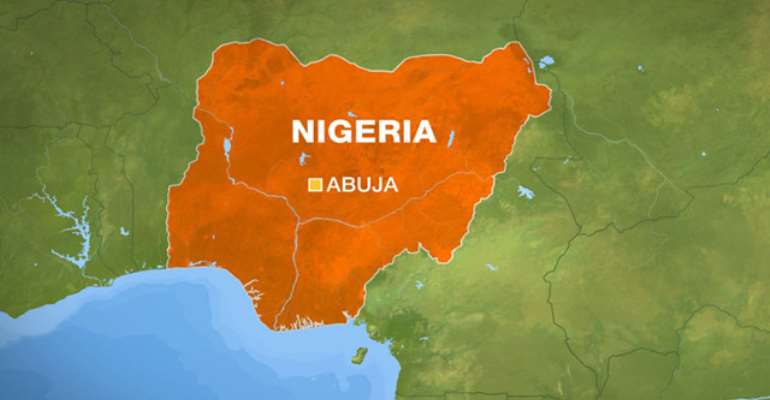Rescuing Abuja from filthiness and rowdiness – Nigerian Pilot

The establishment of a new special task team on environmental protection of the nation's capital by the Minister of the Federal Capital Territory, Mallam Muhammad Bello, is a wakeup call for the Federal Capital Territory Administration, FCTA, to reverse the dwindling environmental condition of the capital city.
Only recently, the minister sacked the former management of the Abuja Environmental Protection Board and replaced it with a new administration.
He went further to commission a 200-man task team with a squadron leader in charge to sanitise the place. This is good and quite commendable, at least to say the obvious, the nation's capital is growing into a filthy failed dwelling that needs to be quickly fixed.
As a point in fact, Abuja is becoming disorderly and dirty, a far cry from an archetypal nation's capital, one in the mould of Paris, and even Accra and Abidjan in sub-Saharan West Africa. This is true and there is no gainsaying the certainty that placed side by side, the eyesore of the city's environment, the garbage that litter the place, even in government institutions and public buildings, the indiscriminate motor parks scattered around the nooks and crannies of the city, the herdsmen that graze with their cattle often halting free flow of traffic, creating jams and gridlock, all put together pose such doubts if Nigerians can boast and be proud of Abuja as their own London.
Yet coming with such reprehensible nomenclatures as a failed filthy capital city (FFCC) without casting any doubt establishing or creating a new outfit to keep the place clean and orderly like a proper and habitable nation's assets is laudable and joyous. It is a good turnaround, a welcomed timing that is edifying even in the judgment of residents.
To ruminate on the beleaguered environmental situation of the nation's capital, the question asked is certainly, what went wrong with Abuja once declared as the fastest growing capital in the world? Why is the place so dirty and rowdy that it requires this task team? The answers are not farfetched if actually the place is not gradually degenerating into a municipal city, sliding infamously to the old Lagos before the inception of the Fashola administration.
In Abuja, it is not unusual to see those who smoke Indian hemp on the streets unchallenged. And by the way they conduct themselves, it is clear that they have no fear of being arrested or accosted by law enforcement agents. To them, the illicit drugs takers, compromise of security agents is a foregone conclusion; and that is if they are not partakers in the condemnable act.
Ditto for squatter settlements which are also the abodes of criminal elements because there are no affordable houses in the metropolis, especially for government workers, abound numerous unpainted cabs specially designed for crimes like 'one-chance', kidnapping, and 419 activities, pick pockets, armed robbery, car snatching without corresponding checks by security agencies.
From Area 1, Berger junction, the notorious Wuse Market to various bus stops along Airport Road, disorderliness remains the norm. Commercial taxis use the major roads as terminals to convey and drop passengers in the full glare of security officials. For instance, in Area 10, Garki District of Abuja, are illegal land dealers and criminal elements who have taken over the place possibly with connivance of top officials of the Abuja Municipal Area Council to sell land documents, most of which are fake.
Similarly, the residents have been victims of car thieves. It is not unusual like in most residences in the city to wake up and find cars stolen by suspected land speculators and their collaborators.
In fact, it is in Abuja that unscrupulous officials of the Abuja Environmental Protection Board aid illegality to assist squatters, hawkers and street traders to indulge in their nefarious acts, by collecting bribes regularly to continue in the misdeed. That is why the fight against these acts is not succeeding. The list of untoward environmental infraction and nuances is endless. It also includes indiscriminate parking on the roads without recourse to road users, when commercial taxis stop by anywhere to pick passengers, because there are no effective bus cubicles or bus stops. And where they are available, the drivers disobey them in the same way traffic and road regulations are not obeyed, as there is no statutory body in the FCTA to ensure enforcement and compliance.
Of truth, this is what has been happening in the city, decreasing slowly and sliding sadly not only into the fastest filthy growing capital city in the world but also notorious for disorderliness and lawlessness.
Nevertheless, we welcome the change of guards at the AEPB, the constitution of a special task team headed by a squadron leader with about 200 security personnel drawn from sister agencies .
We loathe any move that would encourage return of corrupt staff of the AEPB as part of this task team. The terms of engagements as prescribed by the minister, which include respect for human rights and discharging their tasks in line with the provisions of the law and due process, are instructive. It should guide the activities of the task team.
We are also quick to remind the task force on the need to ensure conviction of violators, because it is only this action that can serve as a deterrent for any form of recalcitrance. While we give kudos for this new attempt to bring sanity and make Abuja the real capital city of Nigeria, we urge the minister to as a matter of urgency forward a bill to the National Assembly to establish a new agency that will be saddled with the sole responsibility of enforcing traffic regulation, environmental upkeep and protection of FCTA assets, in addition to efforts currently deployed by the law enforcement agencies in the FCT.
